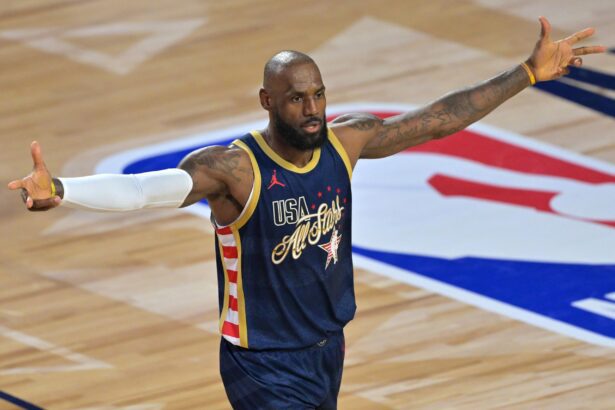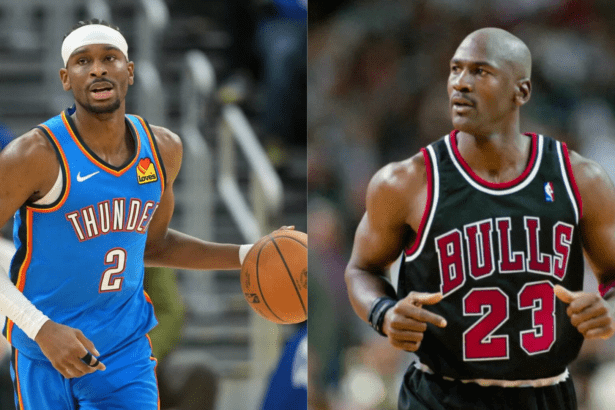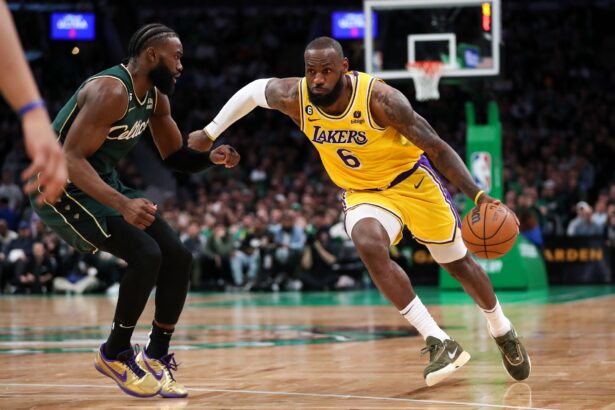When George Gervin, one of the purest scorers the NBA has ever seen, talks about pure scoring, people listen. The Iceman’s finger roll and effortless touch defined an era, and his perspective on what makes a scorer truly ‘pure’ carries weight. So when he joined All The Smoke with Matt Barnes and Stephen Jackson and revealed his list of the five purest scorers in NBA history, it sparked plenty of debate.
Gervin’s list went like this: Alex English, Kareem Abdul-Jabbar, Bernard King, Kevin Durant, and himself.
It’s an incredible lineup of bucket-getters, all of them gifted scorers with unique, unguardable styles. But one name missing from the list immediately caught everyone’s attention: Michael Jordan.
Yes, arguably the greatest player and scorer of all time didn’t make the Iceman’s cut.
To understand that, it helps to look at how Gervin defines ‘pure’ scoring. For him, it’s not just about totals or accolades, it’s about style, craft, and natural flow. The way a player gets his points matters just as much as how many he scores. Every name on Gervin’s list could score effortlessly, without relying heavily on athleticism, pace, or system.
Take Alex English, for example. He led the 1980s in total points scored and made scoring look poetic, silky, smooth, and efficient. Gervin himself averaged over 26 points per game for his career and won four scoring titles, including three straight from 1978 to 1980. He was the original master of making scoring look easy, the blueprint for future offensive stars.
Kareem Abdul-Jabbar may have been a center, but his skyhook remains the most unstoppable shot in basketball history. He led the league in scoring twice and retired as the NBA’s all-time points leader, a record that stood for nearly 40 years until LeBron James broke it.
Bernard King, meanwhile, was pure poetry in the midrange. Before injuries derailed his career, he was a walking bucket, a player who could score 40 in his sleep with footwork and finesse that few could match.
And of course, Kevin Durant is arguably the closest modern player to Gervin’s definition of a ‘pure scorer.’ At nearly seven feet tall with a handle like a guard and a jumper that’s pure silk, KD embodies efficiency and grace. He doesn’t overpower you, he dismantles you.
But still, no Michael Jordan.
It’s not that Gervin doesn’t respect Jordan, far from it. The two actually played together during Gervin’s final NBA season in 1985–86, when Jordan was just beginning to take over the league. They also faced each other twice during Jordan’s rookie year.
In those two meetings, Jordan was already showing flashes of the legend he’d become. He averaged 41.5 points, 8.5 rebounds, and 4.0 assists, while Gervin put up 23.5 points, 3.5 rebounds, and 3.5 assists. The series was split 1-1, but it was clear the torch was passing.
So why no Jordan? Likely because Gervin’s definition of ‘pure scorer’ separates natural artistry from competitive dominance. Jordan’s scoring came from relentless will, athleticism, and killer instinct. Gervin’s list celebrates those who made scoring look effortless, not those who forced greatness through sheer intensity.
In that sense, Gervin’s take makes sense, even if it’s sure to ignite debate. Jordan was a greater scorer, but not necessarily a purer one.
It’s classic Iceman: cool, confident, and unbothered by public opinion. After all, when you averaged 26.2 points per game with ice in your veins, you’ve earned the right to define scoring however you want.

























